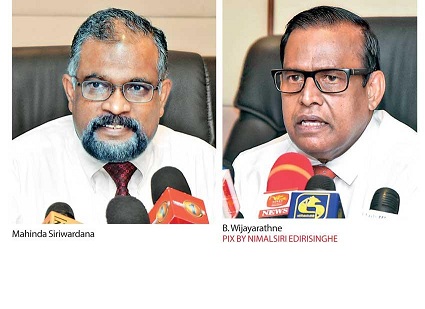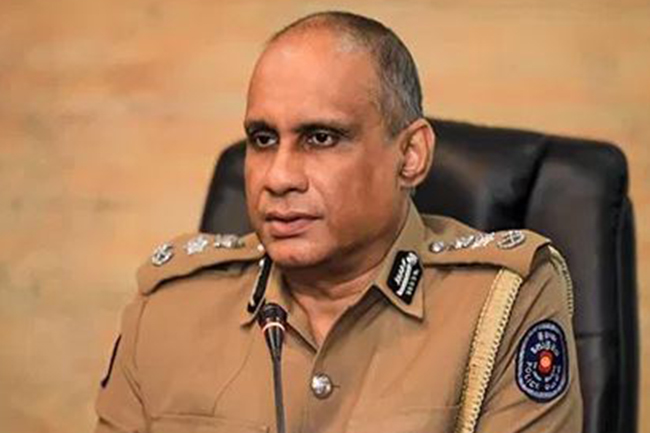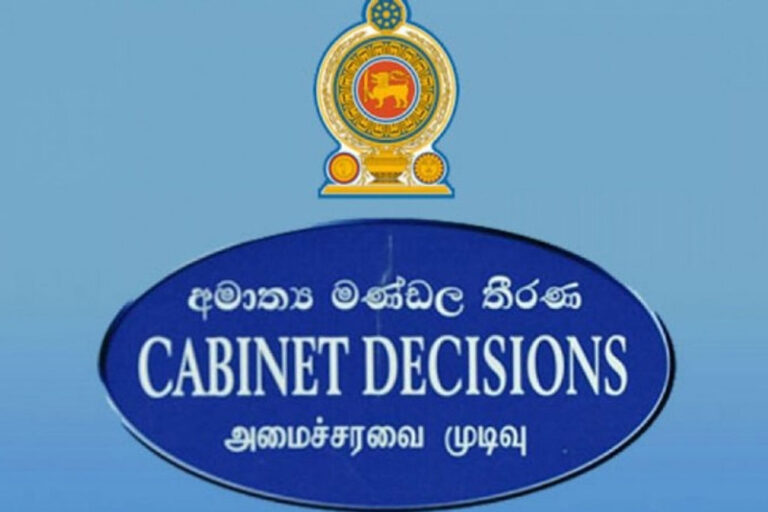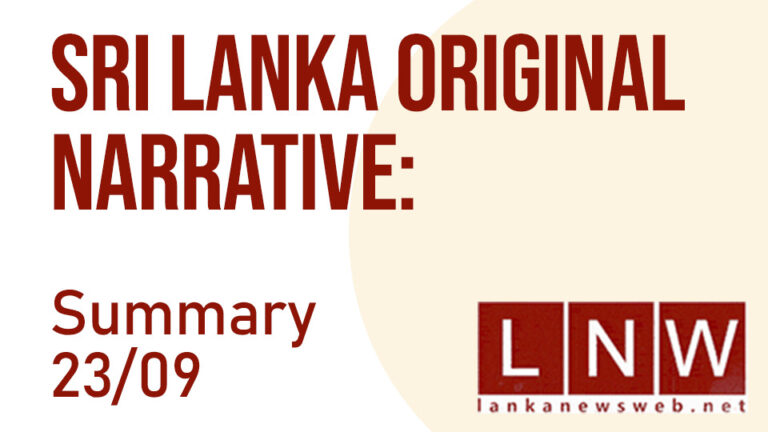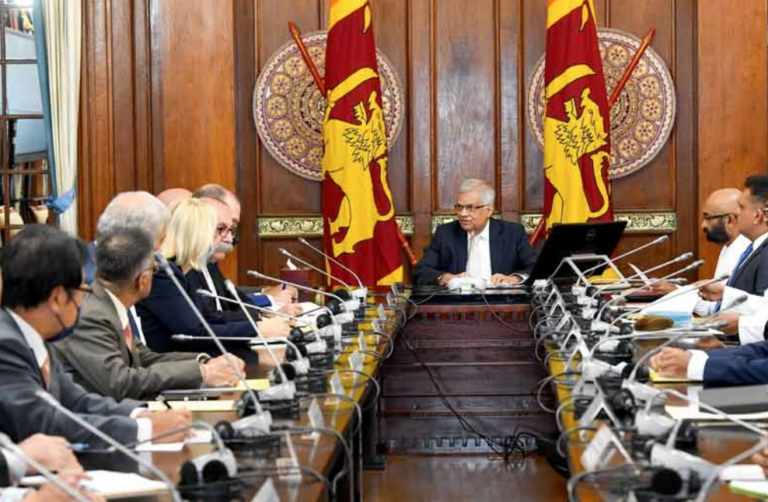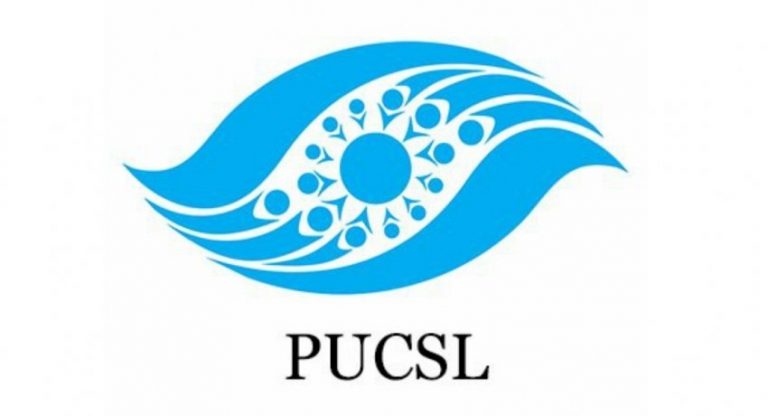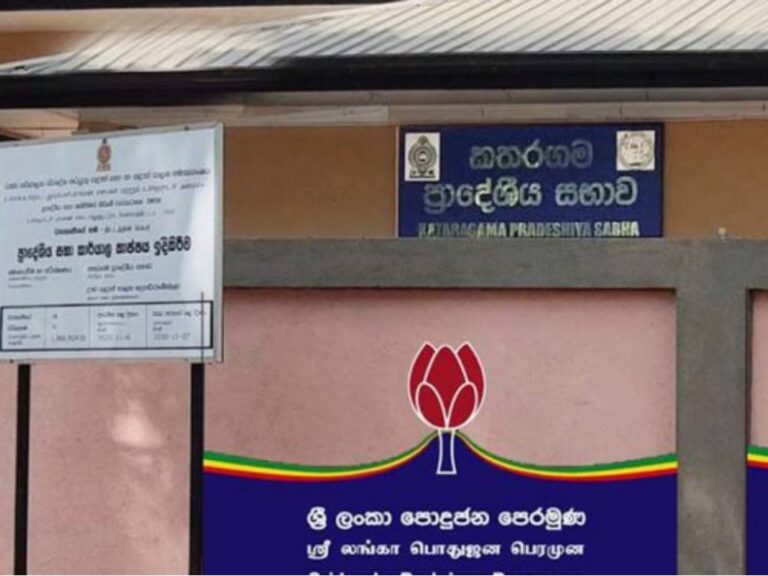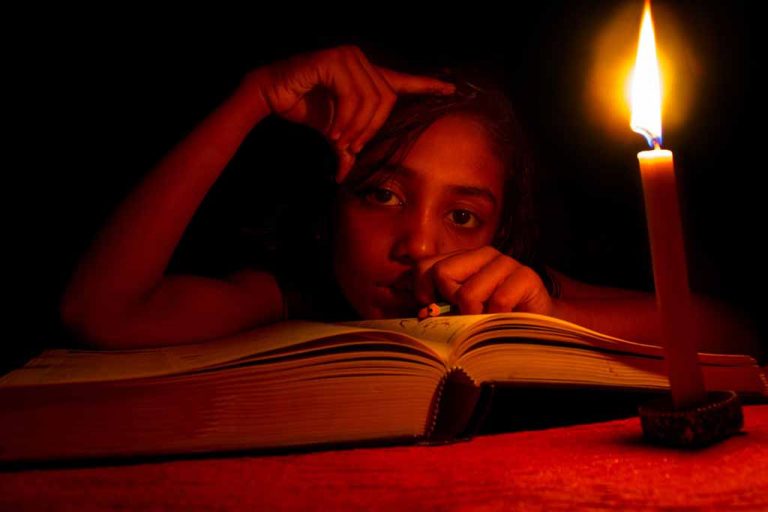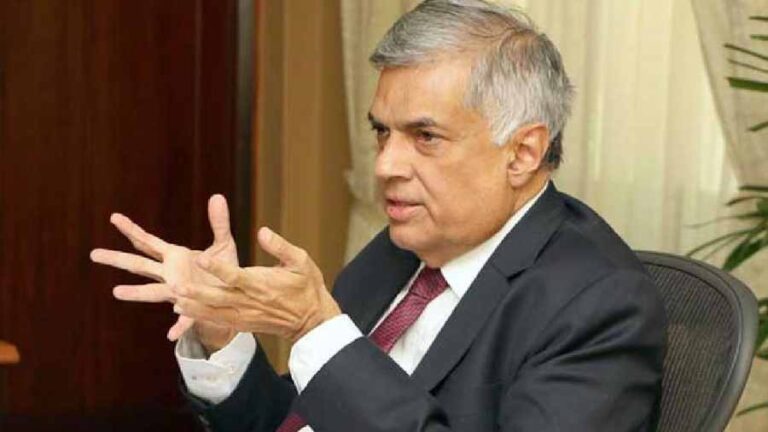After a methodical review, the government will soon overhaul the existing social welfare schemes and their benefits targeting delivery of subsidies to the poor and vulnerable communities.
The identification of needy recipients countrywide is to be made via a credible procedure while evaluating existing schemes without political differences or favouritism, Finance Ministry sources divulged.
The ministry is in the process of establishing transparent and objective criteria to identify recipients of welfare support to ensure that relief is received by the most deserving households, a senior official said.
The improved targeting will enable higher allocations to recipients and will be in the form of cash transfers directly to the bank account of the recipient. This scheme with a strong social safety network is expected to be implemented in the coming months, he disclosed.
The aim is to implement an adaptive social protection network system through use of the governments and International financial agency funds which can quickly provide support to vulnerable groups and provide relief for communities affected by economic crisis.
The assistance of the World Bank and the Asian Development Bank has been mobilised through its re-purpose project funds for emergency spending on social protection needs of these two affected poorest of the poor sectors.
The Welfare Benefit Board will introduce a new QR code system under the finance ministry criteria soon for the identification of those in actual need of financial assistance due to the current economic crisis, among the recipients of Samurdhi, Elders’ and the Physical Disability allowances.
The Chairman of the Welfare Benefit Board, B. Wijayarathne said it is estimated that nearly 3.9 million families will apply for this programme.
I will include the 1.75 million Samurdhi beneficiary families, around 416,000 elderly, about 72,000 disabled persons and about 49,000 persons with chronic kidney disease totalling about 2.3 million.
A data system is to facilitate the subsidy programme to the needy people in a targeted manner he said adding that the aim is to evaluate the number of beneficiaries with all these data.
The exact amounts of cash subsidy for these vulnerable groups under this new scheme are to be yet to be decided; finance ministry senior official said.
Social welfare schemes undergo reforms for the benefit of vulnerable communities.
Contempt of Court: An order to the IGP to appear before the Supreme Court!
Lanka News Web previously reported in two news reports about the complaint filed by the former Superintendent of Police Sugath Mendis before the Supreme Court that the Sri Lanka Police has contempt the court by ignoring the interim order issued by the Supreme Court to reinstate him in the police service.
In relation to this, the Attorney General’s Department had filed a motion before the Supreme Court yesterday (22) and when the case was called today (23), Sudarshi Herath, the lawyer representing the Attorney General’s Department, stated before the bench that the concerned officer should be reinstated immediately and all his arrears should be paid and that there is no need to proceed with this petition as the police have agreed to it.
At that time, lawyer Viran Koraya, who represented the petitioner Sugath Mendis, stated before the court that his client did not agree to it at all. He has explained that they have filed this petition seeking an inquiry into the contempt of court by the Sri Lanka Police by not implementing the Supreme Court’s earlier order to reinstate him. Accordingly, the lawyer stated before the court that his client is asking the Supreme Court to conduct the investigation.
Sudarshi Herath, who appeared for the Attorney General’s Department, told the court again that there was no need to take this further and that the police had agreed to pay the arrears of the concerned officer and reinstate him.
Responding to that, the Supreme Court bench pointed out that the reinstatement of the officer in question has been decided by the court.
Lawyer Viran Koraya, who appeared for the former Superintendent of Police Sugath Mendis, had pointed out that his client had come to the Supreme Court as the last resort to seek justice for the injustice that had happened to him and it is an extremely serious matter that the police did not fulfill the order issued by the Supreme Court to reinstate him. He pointed out that the police have acted in disregard of even the Supreme Court and said that this situation is a shame for them as lawyers. Accordingly, he requested that an investigation be conducted against the police for contempt of the court.
Accordingly, the Supreme Court considered the facts of both sides and ordered the Inspector General of Police CD Wickramaratne, the then Senior DIG of Sabaragamuwa Province Ranmal Kodithuvukku, DIG Nagahamulla, the Officer in Charge of Ratnapura Division and the Director of Police Legal Division to appear before the Supreme Court personally on November 15.
The cabinet decides to limit foreign travel of ministers
The cabinet has decided to limit the foreign travel of cabinet and state ministers only for essential work. President Ranil Wickramasinghe has presented the related cabinet paper.
Considering the difficult economic situation the country is facing, this decision has been reached with the aim of reducing public expenditure.
In his cabinet paper, the President has also suggested that a minimum number of officials should be involved in carrying out essential visits.
SRI LANKA ORIGINAL NARRATIVE SUMMARY: 23/09
- Minister Dr Bandula Gunawardene says the Government does not have sufficient funds to pay salaries of Government employees: also says it is not even possible to “print money” because of the “debt restructuring” being carried out via the IMF.
- Speaker says President informed him that the Cabinet, Opposition and interested parties will be briefed on the IMF Staff Level Agreement before it goes to the IMF Board for approval.
- State Finance Minister Shehan Semasinghe says the meeting with external creditors by the Government and its advisors, is the first such discussion: asserts it’s not possible to disclose details to Parliament.
- Envoys from 23 countries attend Forum on debt restructuring: assure support to obtain assistance from IMF for Sri Lanka to recover from the economic crisis.
- SLPP MP Professor G L Peiris says the government is now trying to silence critics in Parliament: expresses concern that the 13 SLPP MPs who joined the opposition ranks are not allocated time to speak.
- President Ranil Wickremesinghe visits the International Book Fair at the BMICH.
- CB Governor Dr Nandalal Weerasinghe warns the country is not out of the woods: during his near 6 months in office so far, foreign debt defaulted: additional Rs.398bn interest incurred by government: inflation up from 18% to 70%: Rupee down from 299 to 370 per USD: “money printing” up by Rs.643bn: “bridging finance” not sourced: “on account” payments stopped: and IMF programme not finalized.
- SLPP MP Mahindananda Aluthgamage says Sri Lanka’s military strength at 247,000 personnel is too expensive to maintain: wants reserve force to be considered: laments Rs.100bn is spent on their food.
- Extended expiry date of the stock of over 6 million doses of Pfizer Covid-19 vaccines due end on 31st October 2022.
- UNP MP Wajira Abeywardene says President Ranil Wickremesinghe’s visit to Japan next week is important to rebuild the country’s economy: also says President Wickremesinghe is the only present leader in Sri Lanka who has
international recognition.
Foreign ambassadors assure that they will provide full support to SL to recover from the economic crisis
Foreign ambassadors have assured the President that they will provide full support to Sri Lanka to get assistance from the International Monetary Fund to recover from the economic crisis.
They mentioned this in the discussion held at the President’s Office yesterday afternoon (22) chaired by President Ranil Wickramasinghe to inform foreign ambassadors about debt restructuring and getting support from the International Monetary Fund.
Ambassadors from the Paris Club and 23 countries that are not members of the Paris Club were present for this discussion.
The foreign ambassadors who mentioned that they will give their full support to Sri Lanka to get out of this situation, also expressed confidence that Sri Lanka will be able to get out of this crisis soon.
President Ranil Wickramasinghe, who spoke here, stated that the only challenge facing Sri Lanka is this economic crisis, and it is his hope to overcome it for the sake of future generations.
The president also said that he hopes to complete the discussions regarding debt restructuring by the end of this year.
President Ranil Wickramasinghe, who thanked the foreign ambassadors, further stated that the government works with transparency and equality at all times.
The Secretary of the Ministry of Finance, Mahinda Siriwardena and the Governor of the Central Bank, Nandalal Weerasinghe presented a background report on the current economic situation and debt restructuring in Sri Lanka.
Ministers of State Ranjith Siyambalapitiya, Tharaka Balasuriya, Shehan Semasinghe, Presidential Senior Adviser on National Security, Chief of Presidential Staff Sagala Ratnayake, Secretary of the Ministry of Foreign Affairs Aruni Jayawardena and government officials attended the event.
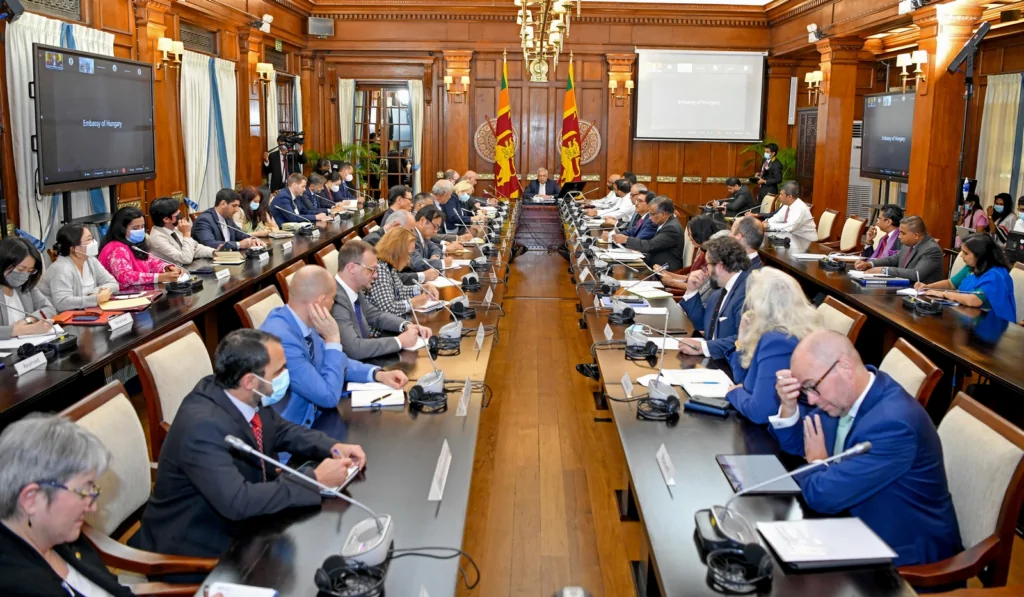
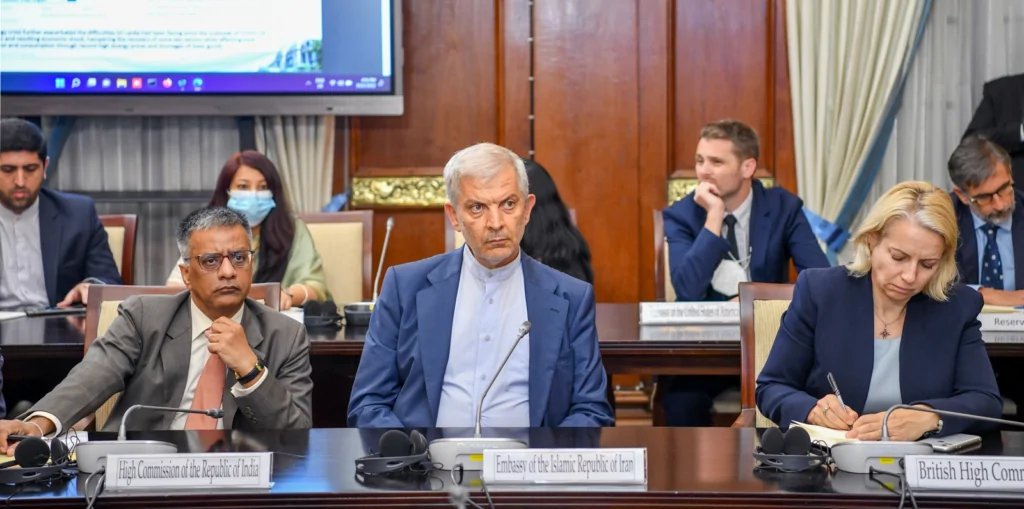
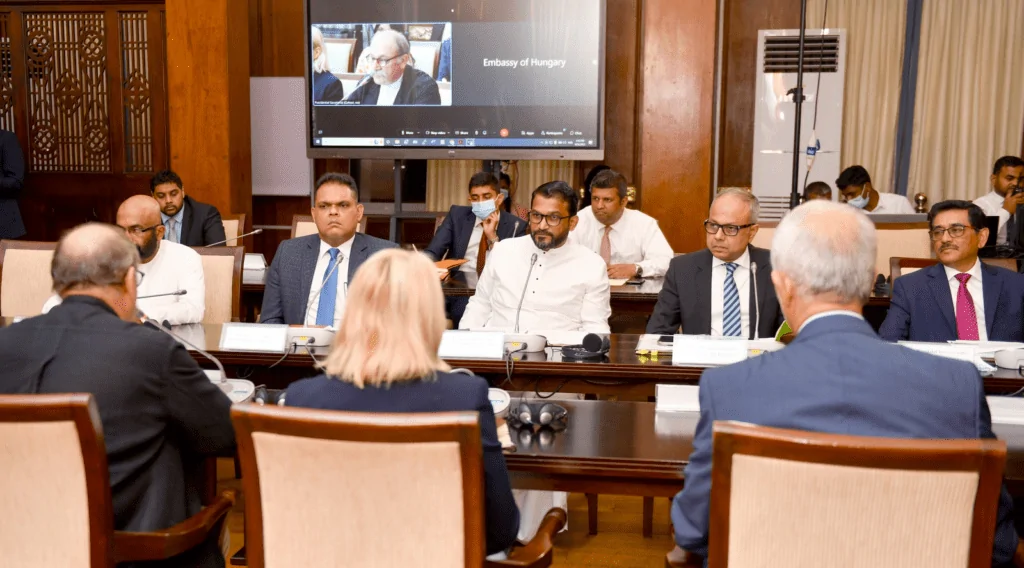
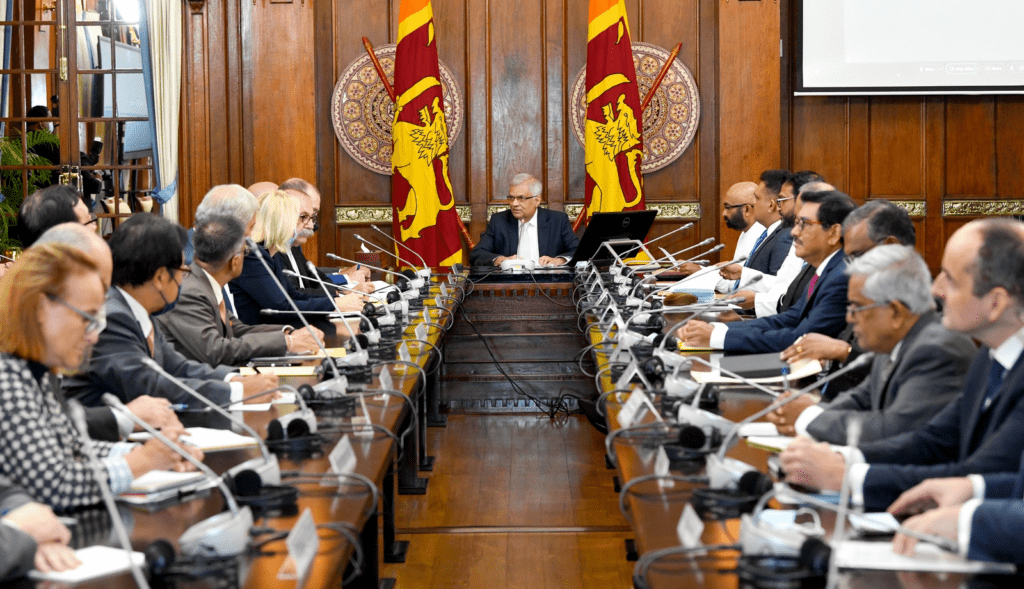
If coal was not imported asap, there will be 10-12 hour power cuts by October – PUCSL
Janaka Ratnayake, chairman of the Public Utilities Commission, has warned that if coal is not imported into Sri Lanka as soon as possible, there will be a 10-12 hour power cut by the last week of October.
“Currently, we have about 250,000 metric tons of coal reserves. That’s about 50 days of reserves. If we do not import coal today and tomorrow, we will have to disable all the power generators in Norochchole after October 28. The main reason for that is that some party has gone to court saying that fundamental rights were violated in awarding the coal to the company called Black Sands Commodities, which submitted the lowest bid during the call for tenders. Also, a third party not involved in this tender is taking big action to disrupt the coal procurement process and get the coal order. By the last week of October, when we run out of coal, if we have to shut down these three generators without coal, we will have to go through a power cut of at least 10-12 hours. The reason for that is that 35%-40% of our electricity is produced from coal.
Janaka Ratnayake said this while addressing a press conference held yesterday (22).
Kataragama Pradeshiya Sabha dissolved over corruption committed by SLPP
The Kataragama Pradeshiya Sabha has been dissolved as per the decision of the Governor of the Uva Province, following the findings of an investigation into corruption allegedly committed under the current regime.
The Kataragama Pradeshiya Sabha ruled by the Sri Lanka Podujana Peramuna (SLPP) was accused of committing serious corruption and a committee head by a retired judge was appointed to probe these allegations.
The allegations are substantiated with the findings detailed in the investigative report, proving that the Pradeshiya Sabha, in fact, is corrupt.
In addition, budget resolutions tabled by the Pradeshiya Sabha Chairman were defeated on two occasions.
In the backdrop, the Governor has decided to dissolve the Kataragama Pradeshiya Sabha and have it under the administration of a special commissioner.
MIAP
PUCSL grants approval to increase power cuts up to 2.20 hrs
A power cut of 02 hours and 20 minutes will occur tomorrow (23) and the day after (24) as approved by the Public Utilities Commission of Sri Lanka (PUCSL).
Accordingly, a power cut of one hour will occur at daytime and another of one hour and twenty minutes at night.
Earlier, the daily power cuts were limited to one hour, and thereafter added twenty minutes.
MIAP
Critical discussion on debt restructuring commenced under President’s patronage
A special discussion on raising awareness on debt restructuring as proposed and agreed with the International Monetary Fund (IMF) among ambassadors appointed for Sri Lanka representing various countries has commenced today (22) under the patronage of President Ranil Wickremesinghe.
The event is attended 16 delegates in Colombo and six more via online from New Delhi, India, and is demonstrating the bailout programme offered by the IMF to resolve the country’s economic crisis.
The discussion today would be very critical to Sri Lanka given that the creditors’ agreement for debt restructuring is set to be obtained tomorrow (23).
MIAP
Businessmen in poultry industry warn of egg shortage soon
The occurrence of a shortage of eggs in the country may be possible given the decline in production efficiency, warned Ajith Gunasekara, President of the All Ceylon Poultry Businessmen’s Association, speaking to a briefing today (22).
The shortage of raw materials has heavily contributed to the decline in production efficiency, he revealed, adding that as a result, the supply may not meet the demand in the future.
He also confessed that in the backdrop, the price of eggs being surged may also be inevitable.
MIAP

